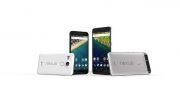Dutch startup Nowi is today launching a small energy-harvesting chip that could solve one of the biggest bottlenecks in the internet of things industry: the need to change batteries.
The tiny device, which is being showcased as part of Huawei’s latest narrowband IoT chip, can turn light — even from relatively dim indoor bulbs — into enough energy to power a small IoT device indefinitely.
While there are other research groups and companies working on energy harvesting, the Nowi solution, which began as a research project at the Technical University of Delft, is the first to be endorsed by a big chip company.
“We have looked at energy harvesting technology from other groups, but this is the most efficient system available on the market at the moment,” says Charles Sturman, Senior Director IoT Product Marketing at Huawei.
There have been a lot of grand predictions about the internet of things. Back in 2013 analysts at consultancies like Gartner and ABI were predicting that up to 100bn devices would be connected by 2020.
The reality has been more like 7bn IoT devices in 2018, according to IoT Analytics. Still impressive but not quite the tsunami of connections we were expecting. A key — albeit mundane — reason has been the battery problem.
“One of the problems customers still have is do these devices have a long enough battery life,” says Sturman. “Connected sensors may save a company time and money, but if someone then has to go out and do maintenance on the sensors constantly suddenly you’ve blown any return on investment again.”
Designing IoT devices to use very little power can eke out battery life to ten years, but even this is not enough, says Sturman. Often IoT installations only make sense if the devices can last for several decades.
Source: sifted.eu





Be the first to comment on "The Tiny Dutch Startup Solving the IoT Industry’s Battery Problem"